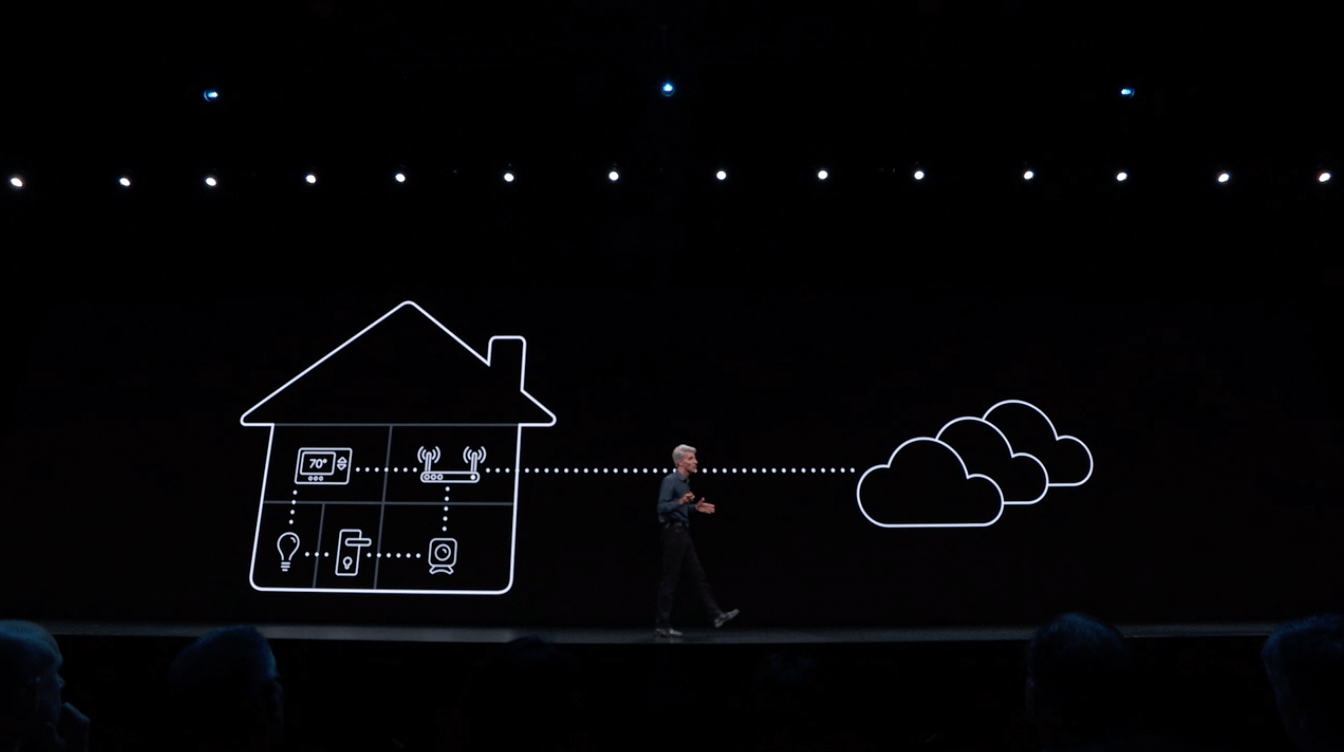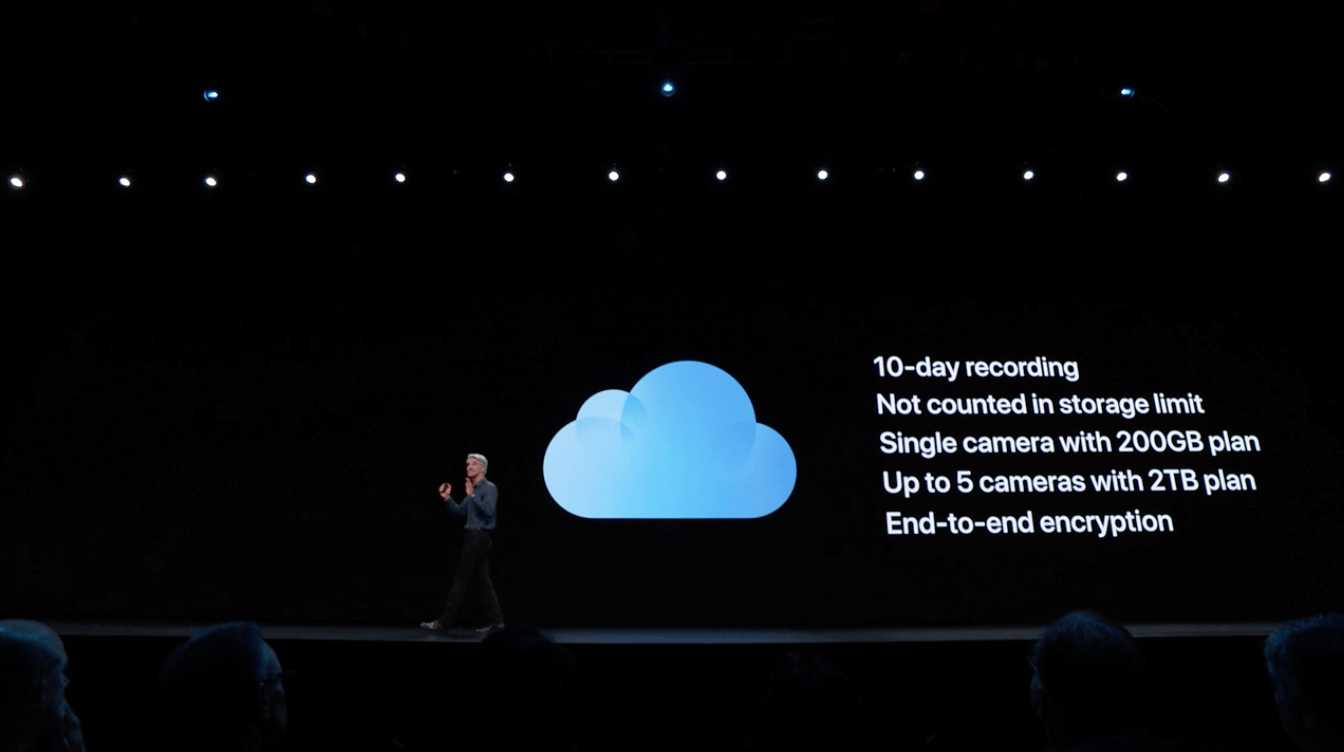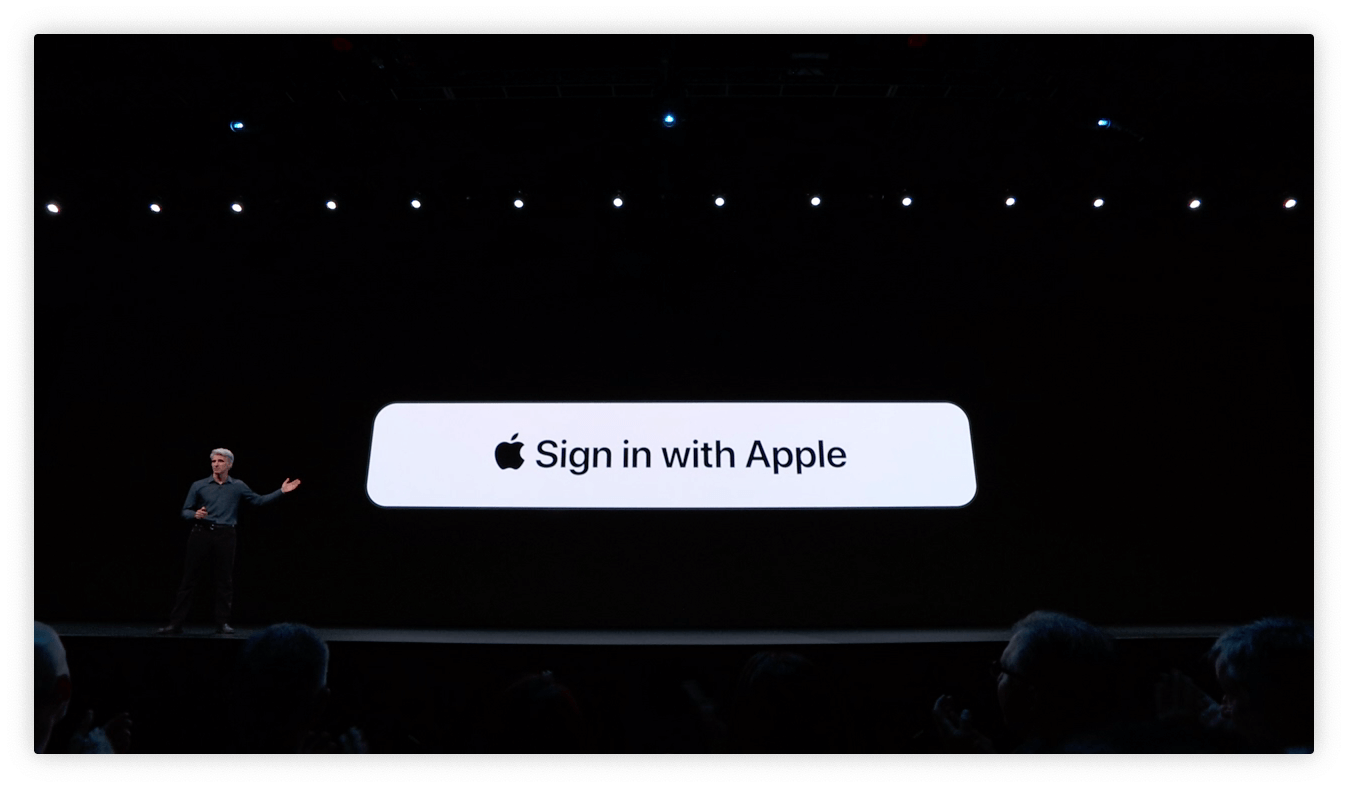Why it matters: Apple is using WWDC 2019 to double down on its focus on privacy and security. The company is taking direct shots at Google and Facebook by positioning itself as a company that doesn't want to sell your data for money. The company is also betting big on that privacy push to continue its foray into services as it shifts away from traditional hardware sales.
Apple's Worldwide Developer Conference (WWDC) is in full swing as the company just unveiled new updates to its major software platforms. During the presentation, Apple execs continued to tout Apple's privacy credentials, a major point of differentiation from its competitors. To further underscore the point, Apple unveiled a new single sign-in button for apps and the web as well as HomeKit support for routers and security cameras.
Many websites often allow users to sign-in using their Facebook or Google credentials, often exposing their profile data for advertising purposes. Apple is rolling out a similar sign-in button that gives websites the minimum amount of personal data and even obfuscates the user's email entirely.
Apple software VP Craig Federighi explained that Apple's version gives users the option to use their real email address or an alternate email that's controlled by Apple. Similar to how Apple Pay works, the alternate email address is redirected to your real email and makes it harder for companies to tie your profile to other things. Once a user is done with an app, the alternate email address is simply deleted.
Continuing the focus on privacy and security, Apple also announced that HomeKit support is coming to routers and security cameras. New HomeKit APIs will allow security cameras to send video data to HomeKit hubs like Apple TVs, HomePods, and even iPads to analyze locally. The video is then encrypted and sent to iCloud to be stored up to 10 days for free. Routers will be able to firewall off accessories so they won't affect any other devices on your network if compromised.


Regarding security cameras, Apple took a few shots at home security solutions like Nest and Ring that send your video to their clouds for analyzing. Apple thinks users would feel better if that data is analyzed locally and then sent to the iCloud where Apple claims they don't have the ability to see your data.
Apple's strategy here is two-fold: Focus on privacy and security as a differentiating factor while continuing to push towards services as a recurring revenue stream. Users can pay for more iCloud storage to save videos from their security cameras. Apple could also have websites pay to use Apple's single sign-in button. In Apple's mind, this presents a win-win for both the company and the consumer. Time will tell if this puts greater pressure on Facebook and Google who rely primarily on user data for advertising revenue.
